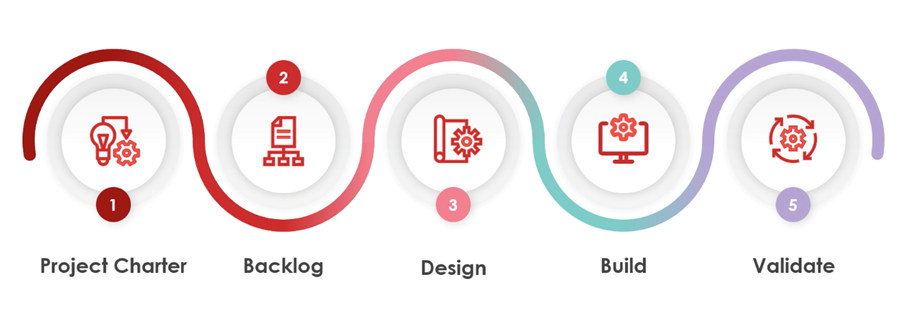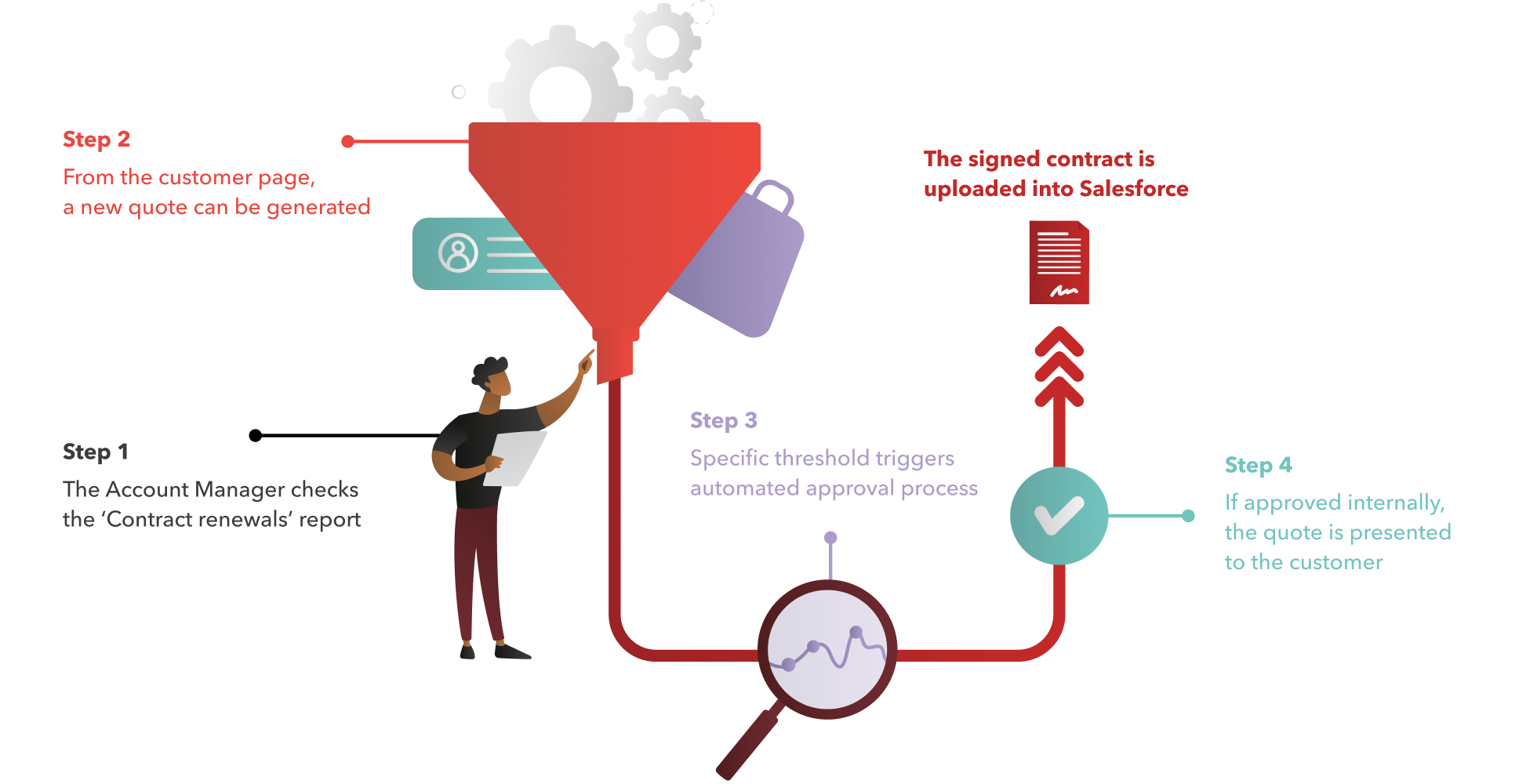The challenge: all about time
“We have a team of about 40 account managers,” says Michaël Reyn, sales manager food industry Europe at Dossche Mills. “Some of these colleagues are responsible for over 100 clients, and most create more than 30 quotes during a busy week. Since our customers are located in multiple countries, there’s a huge complexity in terms of language, payments, and legislation.”
Up until recently, Michaël’s team has been working with a pricing tool that was built on top of the company’s existing ERP systems (which differ per country). As Dossche Mills continued to grow in size and complexity, however, the limitations of this basic pricing tool became more apparent:
- Limited pricing guidance meant several variables had to be calculated outside of the tool, including logistic costs, contract volume proposals, fluctuations of raw materials prices, etc. The resulting errors caused friction for customers and an administrative burden for Dossche Mills.
- Due to missing functionalities like contract templates, account managers had to create a separate Excel file to draft up a contract.
“At the end of the day, account managers wasted a lot of time tinkering with a tool that couldn’t keep up with the everyday reality of the business. Time would be better spent engaging in active selling: meeting with customers, introducing new products, renewing contracts, … Something just had to change. A new pricing tool would be a good start.”



/salesforce-logo-(1).webp?mode=resize&w=320&h=120&attachmenthistoryguid=d1ddc047-9be9-442e-9577-aeb3f552f4c7&v=&c=fe460039a1944560efd63968f34dfb715acab83b0cbed838e4341d0a44e21577)

/delaware_PR_Scalefactory-Cloud-Innovation-partnership-(1).webp?mode=autocrop&w=320&h=240&attachmenthistoryguid=0494c978-4c91-4b92-8097-19eb1cb67f1d&v=&focusX=4622&focusY=2431&c=ea38ce46d00626c40ce87e7b8cb582d099501c92f25ec452a10dc51ba5e9cd08)

